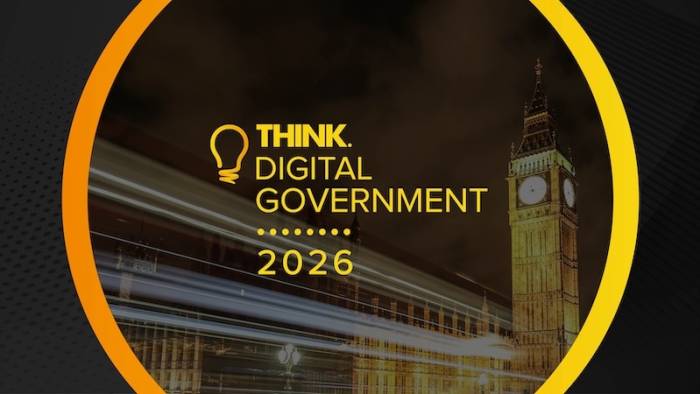United States
iProov has become the first vendor to meet the biometric verification requirements of the newly published NIST SP 800-63-4 Digital Identity Guidelines. The company’s Dynamic Liveness solution, independently tested by an ISO-accredited lab to the CEN18099 injection-attack standard, now satisfies US government-grade verification benchmarks.
The update strengthens protection against AI-driven threats such as deepfakes and mandates phishing-resistant authentication for high-assurance scenarios. iProov’s Flashmark technology enables real-time biometric checks that prevent spoofing and protect AAL3 cryptographic keys from remote exploitation.
United Kingdom
The UK Government is considering a “digitally enabled physical alternative” for citizens unable to use virtual IDs, according to minister Josh Simons. The option could involve Post Office-based onboarding as part of the country’s largest digital inclusion programme. The move follows plans to make a state-issued digital ID mandatory for employment checks by 2029, alongside a forthcoming public consultation on design and accessibility.
United Kingdom
Meanwhile, the Association of Digital Verification Professionals (ADVP) has urged the Government to clarify plans for its proposed national digital identity scheme, calling for a cross-sector forum with the Cabinet Office, reports Computer Weekly.
In an open letter, the ADVP warned that uncertainty over the scheme’s model – whether via GOV.UK Wallet, certified private wallets or a hybrid – risks undermining investment and trust. The group also questioned oversight and regulatory accountability, suggesting a National Audit Office (NAO) review to ensure transparency.
Bulgaria
Bulgarian identity provider Evrotrust has raised €6.6 million from 3TS Capital Partners to accelerate deployment of the European Digital Identity Wallet (EUDI Wallet) in Bulgaria and expand across Europe. The funding comes as EU member states prepare to meet eIDAS 2.0 requirements, which mandate at least one national wallet by end-2026. From March 2027, public and private services will be required to accept the wallet.
Europe
If you liked this content…
The European Commission has published three new implementing acts for the EUDI Wallet. Regulation 2025/2160 sets risk policies for non-qualified trust services; 2025/2162 defines accreditation rules for conformity assessment bodies; and 2025/2164 updates trusted-list templates. Together they refine operational, accreditation and reporting frameworks for trust-service providers preparing for eIDAS 2.0 compliance.
United States
Identity advertising provider ID5 has acquired US identity-graph company TrueData, strengthening its presence in North America. TrueData executives Scott Conine and Jon Durkee join ID5’s leadership team as strategic advisor and CRO. The integration of TrueData’s graph into ID5’s Adaptive Identity technology will boost data connectivity and cross-channel measurement for global partners, expanding the company’s 80-strong workforce across three continents.
United Kingdom
Cybersecurity firm Trend Micro and fraud-prevention service Cifas have partnered to launch JustMe, a mobile app that combines real-time identity verification with scam protection. With identity fraud accounting for nearly 60 percent of UK cases logged on the Cifas National Database, JustMe will alert users to fraudulent applications and flag suspicious communications for verification. The initiative targets the UK’s £219 billion annual fraud problem and aims to give individuals greater control over their data.
United States
NEC X, a Silicon Valley venture studio backed by NEC Corporation, has invested in decentralised digital identity specialist Indicio. The collaboration, part of NEC X’s Elev X! Boost programme, will accelerate Indicio’s work on cryptographically verifiable identities for people, organisations and AI agents. Indicio’s technology, already used in a digital travel credential project with SITA and the Government of Aruba, targets the self-sovereign identity market, which is projected to reach $47.1 billion by 2029.
United Kingdom
With mandatory ID verification for all UK company directors due on November 18 2025, the government’s flagship GOV.UK One Login platform faces mounting criticism from MPs and cybersecurity experts. Conservative MP David Davis has raised concerns over “serious cybersecurity flaws,” citing whistleblower claims of failed red-team tests and unsecured overseas development work. The system reportedly missed key security milestones and may not complete all required testing until 2026, fuelling doubts just weeks before launch.
United Kingdom
Elsewhere, the UK Department for Science, Innovation & Technology (DSIT) has opened a market engagement exercise for future identity fraud-check and contact-validation services to support GOV.UK One Login. The request for information will help shape procurement for a contract valued at approximately £1 million, running from 2026 to 2028. The initiative aims to enhance fraud detection and contact-point verification as the platform scales across government.











